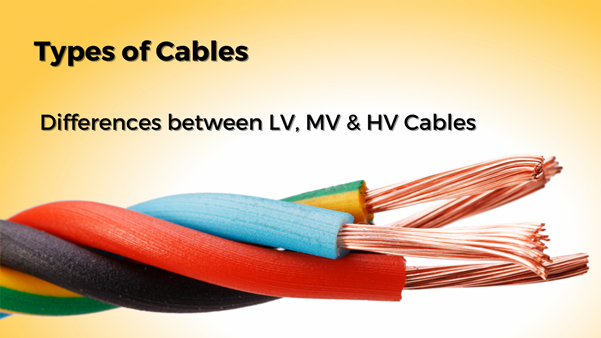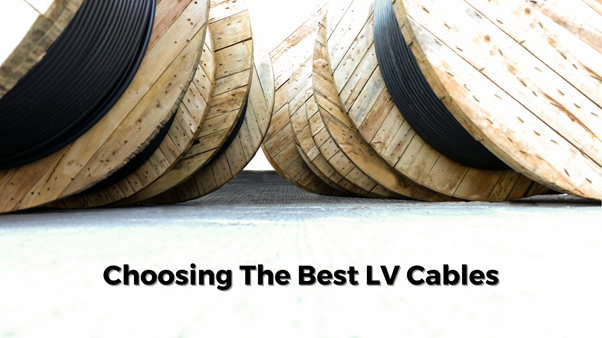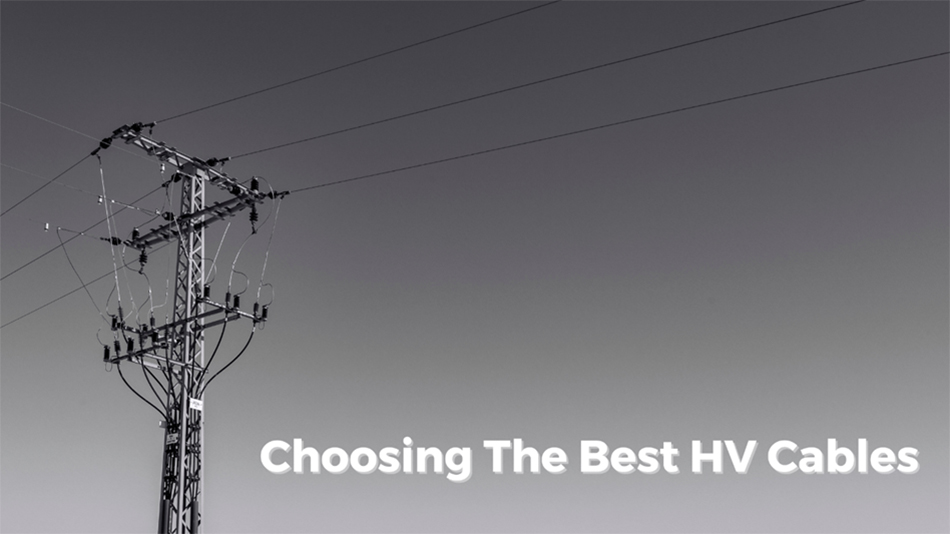- An ISO 9001:2015, 14001:2015 & 45001:2018 Company
Types of Cables: Differences between LV, MV & HV Cables
Types of Cables: Differences between LV, MV & HV Cables
 With so many types of cables in the market, it’s more important than ever to choose the best wires and cables for your needs.
With so many types of cables in the market, it’s more important than ever to choose the best wires and cables for your needs.
Not all electrical cables are created equal. There are several different types of cables, each designed for specific applications and voltage levels, but they can be broadly split between three categories. Understanding the differences between LV (low voltage), MV (medium voltage), and HV (high voltage) cables is crucial for choosing the best cable and wire for any specific application.
Choosing the best LV Cables:

Low voltage cables are designed for applications where the voltage level is up to 1 kV. They are typically used for power distribution in residential and commercial buildings, and low-power industrial applications. LV cables are typically made of copper or aluminium conductors with PVC or XLPE insulation.
LV cables are available in a variety of configurations, including single-core, multi-core, and flexible cables. Single-core cables are used for power distribution, while multi-core cables are used for power and signal transmission. Flexible cables are used in applications where the cable needs to be bent or twisted, such as in robotics or automation systems.
They are generally easy to install and maintain and are relatively inexpensive compared to MV and HV cables. They are also available in a wide range of sizes and configurations, making them a versatile option for many applications.
Choosing the best MV Cables:

Medium voltage cables are designed for applications where the voltage level is between 1 kV and 36 kV. They are typically used for power distribution in medium-sized industrial applications, and for connecting renewable energy sources to the grid. MV cables are typically made of copper or aluminium conductors with XLPE insulation.
These versatile cables are available in several different configurations, including single-core, multi-core, and screened cables. Single-core cables are used for power distribution, while multi-core cables are used for power and signal transmission whereas screened cables are used in applications where electromagnetic interference (EMI) needs to be minimized.
MV cables are generally more expensive than LV cables, but they are still relatively easy to install and maintain. They are also more robust than LV cables, with higher current-carrying capacity and better resistance to electrical interference.
Choosing the best HV Cables:

HV cables are the most expensive and complex type of cable, requiring specialized installation and maintenance. They are also the most robust, with the highest current-carrying capacity and best resistance to electrical interference.
These high voltage cables are designed for applications where the voltage level is over 36 kV. They are typically used for power transmission over long distances, connecting offshore wind farms to the grid, and other high-power industrial applications. HV cables are typically made of copper or aluminium conductors with XLPE or EPR insulation and may also include additional layers of insulation or shielding.
HV cables are available in several different configurations, including single-core, multi-core, and composite cables. Single-core cables are used for power transmission, while multi-core cables are used for power and signal transmission. Composite cables combine several types of cables into a single cable, for applications where multiple functions need to be integrated.
To sum it up, LV, MV, and HV cables are all designed for specific applications and voltage levels. Choosing the right cable for a specific application is crucial for ensuring optimal performance and safety. When approaching the cable and wire manufacturers in India, factors to consider include the voltage level, current-carrying capacity, insulation material, and configuration. When selecting a cable, it's important to consult with professional wire companies to ensure that the cable is installed and maintained correctly. By understanding the differences between these different types of cables, you can make an informed decision.
 English
English


 C701, Tower-C, Noida One
C701, Tower-C, Noida One
